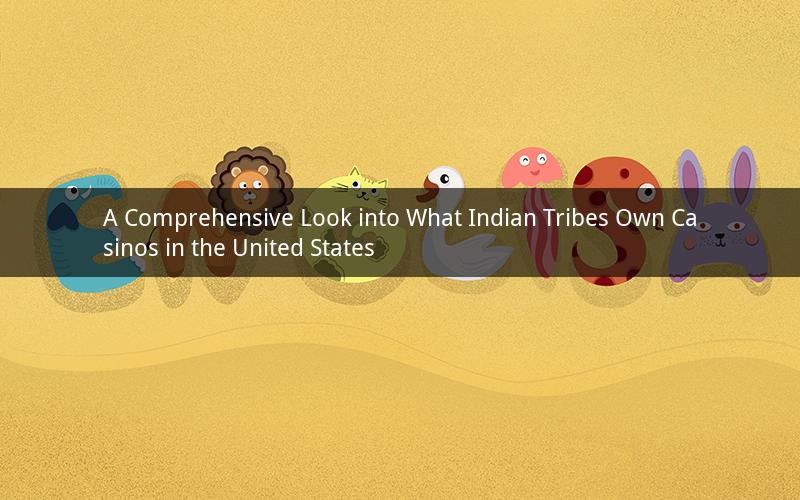
Introduction:
The Native American tribes in the United States have a rich cultural heritage and history. In recent years, many tribes have turned to the gaming industry, specifically casinos, as a means of economic development and self-sufficiency. This article delves into the topic of what Indian tribes own casinos and explores the various aspects surrounding this issue.
1. The Rise of Indian Casinos:
The rise of Indian casinos in the United States can be attributed to the Indian Gaming Regulatory Act (IGRA) of 1988. This legislation allowed tribes to establish casinos on their reservations, provided they entered into compact agreements with the state. Since then, Indian tribes have become major players in the gaming industry, generating significant revenue and economic opportunities for their communities.
2. Tribal Ownership of Casinos:
Indian tribes own and operate a wide range of casinos across the United States. These casinos come in various forms, including land-based casinos, tribal casinos, and online gaming platforms. The tribes have the authority to regulate and manage their own gaming operations, which provides them with a significant level of autonomy.
3. Popular Indian Casinos:
Several Indian tribes own and operate highly successful casinos that have gained national recognition. Some notable examples include:
a) The Pechanga Band of Luiseño Indians: Located in Temecula, California, the Pechanga Resort and Casino is one of the largest casinos in the United States. It features more than 4,000 slot machines, over 150 table games, and a world-class spa.
b) The Seminole Tribe of Florida: The Seminole Hard Rock Hotel & Casino in Hollywood, Florida, is a popular destination for gamblers and tourists. It offers a variety of gaming options, including slots, table games, poker, and bingo.
c) The Mohegan Tribe: The Mohegan Sun in Uncasville, Connecticut, is a premier gaming and entertainment destination. It boasts a wide range of slot machines, table games, poker rooms, and a luxury hotel.
4. Economic Impact of Indian Casinos:
The economic impact of Indian casinos on tribes and surrounding communities is significant. Casinos generate revenue through gaming, dining, lodging, and other amenities, which can be used for various purposes, such as:
a) Job Creation: Indian casinos provide employment opportunities for thousands of individuals, including tribal members and non-members. This helps reduce unemployment rates and stimulates economic growth in the region.
b) Community Development: Revenue from casinos is often allocated to community development projects, such as housing, healthcare, and education. This improves the quality of life for tribal members and surrounding communities.
c) Revenue Sharing: Some tribes share casino revenue with other tribes or local governments, fostering cooperation and collaboration among different communities.
5. Challenges and Controversies:
Despite the economic benefits, Indian casinos also face challenges and controversies. Some of these include:
a) Environmental Impact: Casino construction and operation can have negative environmental effects, such as air and water pollution.
b) Social Costs: The presence of casinos can lead to social issues, including increased crime rates and substance abuse.
c) Legal and Regulatory Issues: Tribes must navigate complex legal and regulatory frameworks to ensure compliance with federal and state laws.
FAQs:
1. How many Indian tribes own casinos in the United States?
- There are over 500 federally recognized tribes in the United States, and a significant number of them own and operate casinos.
2. Are Indian casinos open to the general public?
- Most Indian casinos are open to the general public, but some may require tribal membership or have restrictions on entry.
3. How much revenue do Indian casinos generate annually?
- The gaming industry in the United States generates billions of dollars annually, with Indian casinos accounting for a substantial portion of this revenue.
4. Do Indian tribes have exclusive rights to operate casinos on their reservations?
- While tribes have the authority to establish and operate casinos, they must adhere to the terms of their compact agreements with the state.
5. Can non-Indian tribes own and operate casinos on reservations?
- No, only federally recognized Indian tribes can own and operate casinos on their reservations under federal law.
Conclusion:
The ownership of casinos by Indian tribes in the United States has significantly transformed the economic and social landscape of many communities. While these casinos bring substantial benefits, such as job creation and revenue sharing, they also face challenges and controversies. As the gaming industry continues to evolve, it is crucial for tribes, governments, and communities to work together to ensure sustainable and responsible gaming operations.